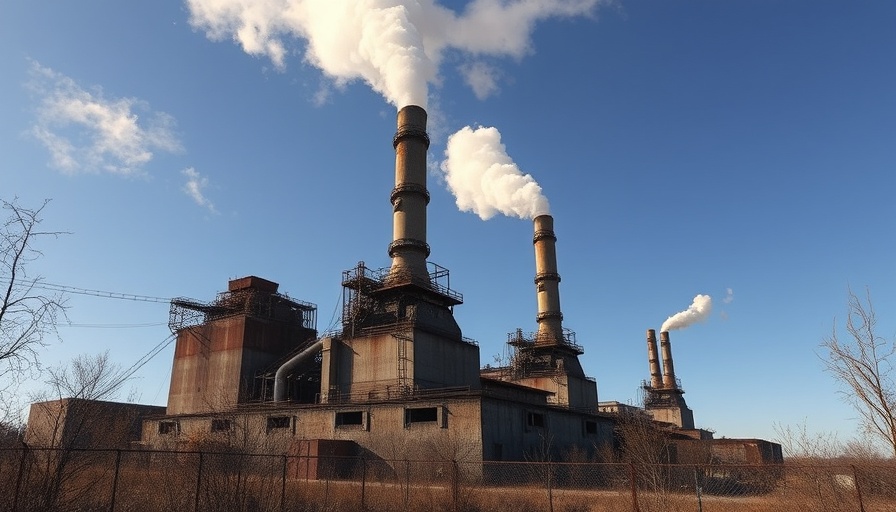
The Crumbling Foundations of South Africa’s Steel Industry: A Call for Comprehensive Reform
South Africa's steel industry, once a cornerstone of its industrial growth, now faces a significant crisis that threatens jobs, economic stability, and the very fabric of its manufacturing base. The recent announcement by ArcelorMittal South Africa (AMSA)—the nation’s largest steel producer—about shutting down crucial operations is a stark signal of this decline, fueled by rising energy costs, outdated infrastructure, and an influx of cheaper imports. The repercussions of this failure will resonate far beyond the steel sector, affecting downstream industries and the broader economy.
Understanding the Depth of the Crisis: A Historical Context
Historically, South Africa’s steel sector has been integral to its journey towards industrialization, rendering an essential foundation for construction, manufacturing, and infrastructure development. However, over the past few years, the landscape has shifted dramatically. AMSA's decision to scale back operations marks not just a corporate restructuring, but also an alarming symptom of a more profound systemic failure affecting South Africa’s industrial policy.
The South African Steel and Metal Fabrication Master Plan: Hopes Dashed
In 2021, the South African government introduced the Steel and Metal Fabrication Master Plan (SMP) with the intent of revitalizing local production while reducing dependency on imports. Despite its ambitious aims, the SMP has failed to effect real change, highlighted by its lukewarm reception by industry leaders who often describe it as a “disaster plan.” Instead of gaining traction, local producers have leveraged tariffs to heighten prices and limit competitiveness, perpetuating a cycle of increased operational costs for downstream industries like construction and automotive.
Rising Costs and Stagnant Technology: A Dual Challenge
Perhaps the most troubling aspect of this mounting crisis is the stagnation in technological advancement within South Africa's steel production methods. While global competitors are pivoting towards energy-efficient and environmentally friendly production processes, AMSA continues to rely on outdated blast furnace technology. Expert opinions emphasize that without significant investments in modernization, South Africa's competitive edge in the steel market will erode further.
Job Losses and Economic Fallout: The Human Cost
The impending closure of AMSA’s plants is more than an industrial reshuffle; it's a warning bell. The expected loss of jobs—3500 direct at AMSA alone, with projections suggesting that over 50,000 could follow in related sectors—signals a dramatic reversal in an already beleaguered workforce. Statistical trends reveal a continuous decline in steel industry employment over the years, underscoring the urgency for policy interventions that can reverse this trajectory.
Counterarguments and Diverse Perspectives: Navigating Complexity
There are dissenting views regarding the government's approach towards the steel industry, pointing to persistent policy uncertainty and high electricity costs as the core culprits driving this crisis. Some industry analysts advocate for a more radical shift in government policy toward supporting local industries, allowing for the kind of robust intervention seen in other global economies where government-backing initiatives have indeed revived key industrial sectors.
Breaking the Cycle: Sustainable Practices and Future Opportunities
To prevent the erosion of its foundational industry, South Africa must consider comprehensive reforms that address not only energy efficiency and infrastructure investments but also foster innovation in green production technologies. Embracing sustainable practices could position South Africa as a leader in eco-friendly steel production—creating jobs while also reducing the industry's environmental footprint.
Call to Action: Collaboration is Key
For meaningful reform to blossom, the public and private sectors must unite towards fostering a comprehensive industrial policy framework. This encompasses creating incentives for modernization, enhancing infrastructure, and engaging stakeholders across the steel value chain. Policymakers must encourage dynamic dialogue with industry leaders to ensure that policies are not only viable but robust enough to propel South Africa’s industrial economy towards recovery and growth.
In conclusion, the future of South Africa’s steel industry hangs in the balance, necessitating immediate and coordinated action from all sectors involved. Stakeholders must act swiftly to avert a situation where reliance on imports undermines local industrial capacity. By focusing on innovation, modernization, and sustainable practices, South Africa can reclaim its position as a competitive player in the global steel market.
 Add Row
Add Row  Add
Add 




Write A Comment